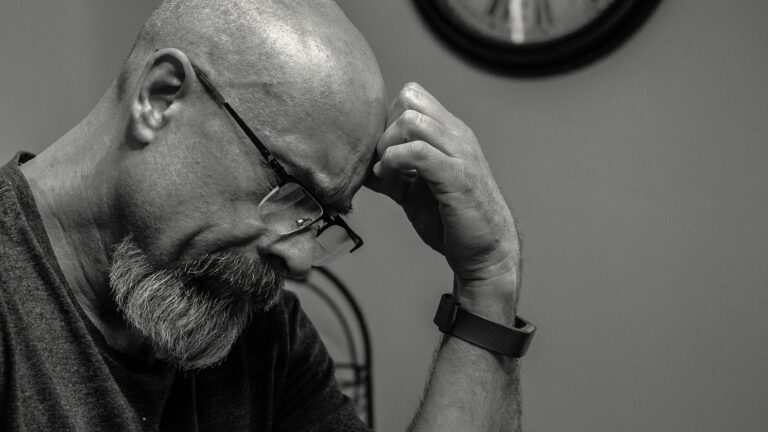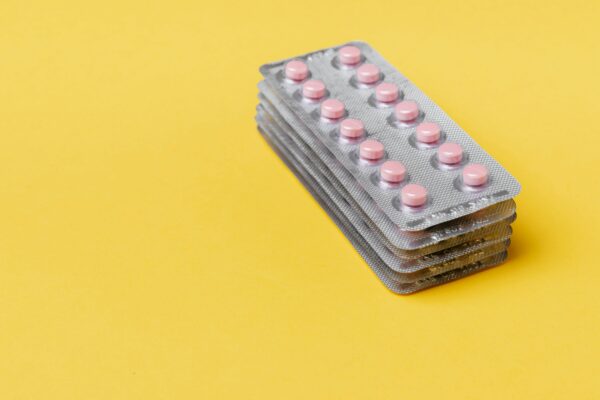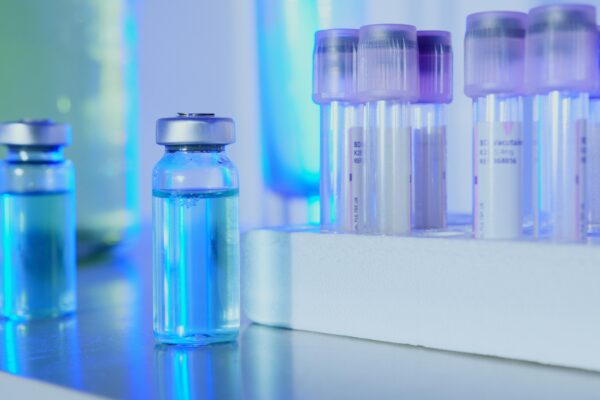When it comes to dealing with hair loss, finasteride has long been hailed as a miracle solution. But let’s be honest—every guy wants to keep his hair and his performance in check. The burning question that’s been making the rounds is: Does finasteride cause erectile dysfunction (ED)? If you’re concerned about preserving your crown and your confidence in the bedroom, we’ve got you covered. Let’s dive deep into this topic and separate facts from fiction.
- What Is Finasteride and How Does It Work?
- Finasteride and Erectile Dysfunction: The Link
- Why Does Finasteride Cause Erectile Dysfunction?
- Who Is Most at Risk?
- Can Erectile Dysfunction Be Prevented While Using Finasteride?
- Post-Finasteride Syndrome: A Closer Look
- Balancing Hair and Sexual Health
- Final Thoughts
- Studies, Sources, and Links
- FAQs: Finasteride and Erectile Dysfunction
- Question: Does finasteride cause erectile dysfunction?
- Question: Is erectile dysfunction caused by finasteride permanent?
- Question: How common is erectile dysfunction among finasteride users?
- Question: Can I prevent erectile dysfunction while taking finasteride?
- Question: Are there alternatives to finasteride for hair loss?
What Is Finasteride and How Does It Work?
Finasteride is a prescription medication used to treat two main conditions: male pattern baldness (androgenetic alopecia) and benign prostatic hyperplasia (BPH). It works by inhibiting the enzyme 5-alpha-reductase, which converts testosterone into dihydrotestosterone (DHT). Elevated DHT levels are often the culprit behind hair loss and prostate enlargement.
By reducing DHT levels, finasteride can stop hair loss and even promote regrowth. But here’s the twist: DHT is also linked to libido and erectile function, leading to concerns about how finasteride might interfere with your other head’s performance.
Finasteride and Erectile Dysfunction: The Link
One of the most discussed side effects of finasteride is erectile dysfunction. According to clinical studies, ED occurs in a small percentage of men taking finasteride. However, it’s crucial to understand the nuances behind these numbers:
- Prevalence: In clinical trials, around 1-3% of men reported ED as a side effect of finasteride. While the risk seems low, it’s not negligible.
- Reversibility: For most men, these side effects resolve after discontinuing the medication. However, a small subset of users report persistent sexual side effects, a condition sometimes referred to as post-finasteride syndrome (PFS).
- Psychological Factors: Anxiety about potential side effects can itself lead to performance issues. Yep, sometimes your brain is your own worst enemy.
What Does the Research Say?
Scientific studies have produced mixed results when it comes to finasteride and ED. Here’s what the evidence shows:
- Clinical Trials: Initial studies indicated that sexual side effects, including ED, decreased over time for most users. Researchers also noted that placebo groups reported similar issues, suggesting a psychological component.
- Long-Term Effects: Some studies have raised concerns about persistent sexual dysfunction even after stopping finasteride. This has led to ongoing debates in the medical community about the risk of PFS.
- Meta-Analyses: Reviews of multiple studies conclude that while there is a risk of ED, it’s relatively rare and often temporary. Nevertheless, awareness is critical.
Why Does Finasteride Cause Erectile Dysfunction?
Finasteride’s impact on ED can be attributed to its hormonal effects:
- Lower DHT Levels: DHT plays a role in maintaining libido and erectile function. By reducing DHT, finasteride might interfere with these processes.
- Reduced Nitric Oxide Production: Some research suggests that DHT is involved in nitric oxide signaling, which is essential for erections. Reduced nitric oxide levels can impair blood flow to the penis.
- Testosterone Fluctuations: While finasteride increases testosterone levels, the hormonal imbalance could affect sexual health.
Who Is Most at Risk?
Not everyone reacts to finasteride the same way. You might be at higher risk for ED if you:
- Are older (40+ years).
- Have pre-existing health issues like diabetes, heart disease, or low testosterone.
- Experience significant stress or anxiety about taking the medication.
Can Erectile Dysfunction Be Prevented While Using Finasteride?
If you’re worried about ED but still want to keep your hair, here are some strategies to minimize your risk:
- Start With a Lower Dose: Some men respond well to smaller doses of finasteride, reducing the likelihood of side effects.
- Adopt a Healthy Lifestyle: Regular exercise, a balanced diet, and stress management can improve overall sexual health.
- Monitor Your Symptoms: Keep track of any changes in your libido or erections and discuss them with your doctor.
- Consider Alternative Treatments: Minoxidil, platelet-rich plasma (PRP) therapy, or hair transplants might be viable options if finasteride doesn’t agree with you.
What to Do If You Experience ED While on Finasteride
If you notice a dip in your bedroom performance, don’t panic. Here’s what you can do:
- Consult Your Doctor: Don’t self-diagnose or stop taking the medication abruptly. Your doctor might adjust the dosage or suggest alternatives.
- Lifestyle Adjustments: Incorporate habits that boost blood flow and testosterone levels, such as weightlifting, a Mediterranean diet, and adequate sleep.
- ED Treatments: Medications like sildenafil (Viagra) or tadalafil (Cialis) can provide temporary relief while you figure out your next steps.
- Discontinue If Necessary: If the side effects are severe or persistent, discontinuing finasteride might be the best course of action. Most men see an improvement in sexual function after stopping.
Post-Finasteride Syndrome: A Closer Look
For a small number of men, sexual side effects persist long after stopping finasteride. Symptoms of PFS include:
- Chronic erectile dysfunction.
- Reduced libido.
- Psychological issues like depression and anxiety.
While PFS is not fully understood, researchers are actively studying the condition to provide better treatment options. If you suspect you have PFS, seek advice from a specialist familiar with the syndrome.
Balancing Hair and Sexual Health
Let’s face it—losing your hair can feel like losing a part of your identity. But your sexual health is just as important. The good news is that most men can use finasteride without significant issues. For those who do experience side effects, there are solutions and alternatives available.
At the end of the day, it’s about striking the right balance. Talk to your doctor, weigh the pros and cons, and make an informed decision that aligns with your priorities. Remember, you’re not alone in this journey, and there’s no shame in seeking help.
Final Thoughts
Finasteride may be a game-changer for hair loss, but it’s not without risks. Understanding the potential for erectile dysfunction and knowing how to mitigate it can help you make the best choice for your health and confidence. Whether you’re in it for the hairline or the headlines in the bedroom, take charge and stay informed—you’ve got this.
Studies, Sources, and Links
To provide accurate and reliable information, we’ve referenced key studies and resources regarding finasteride and erectile dysfunction. Below are some of the most relevant studies and articles for further reading:
- Clinical Trials on Finasteride and Sexual Side Effects
A study published in the Journal of Sexual Medicine explored the incidence of sexual side effects in men taking finasteride for male pattern baldness. Results indicated that while some men experienced ED, the majority reported resolution after discontinuing the medication.
Link to study - Post-Finasteride Syndrome (PFS)
Research conducted by the Post-Finasteride Syndrome Foundation highlights the persistent sexual and psychological effects experienced by a small subset of users. Ongoing studies aim to uncover the underlying mechanisms of PFS.
Post-Finasteride Syndrome Foundation - Meta-Analysis of Finasteride and Sexual Dysfunction
This comprehensive review in Andrology Today evaluated multiple studies on finasteride’s impact on sexual health, concluding that side effects are rare but possible.
Read the meta-analysis - DHT and Sexual Health
An article from Endocrinology Insights delves into the role of dihydrotestosterone (DHT) in male sexual function and how its suppression by finasteride may contribute to ED.
Learn more about DHT - Psychological Effects of Hair Loss and Treatment
A study in the Journal of Dermatology and Psychology discusses the psychological impact of hair loss and the potential placebo effect in reports of finasteride-related ED.
Link to article
For those interested in exploring this topic further, consult your healthcare provider and trusted medical sources to make informed decisions about finasteride and its potential side effects.
FAQs: Finasteride and Erectile Dysfunction
Question: Does finasteride cause erectile dysfunction?
Finasteride can cause erectile dysfunction in a small percentage of men. Studies suggest that approximately 1-3% of users report ED as a side effect, but for most men, the condition resolves after discontinuing the medication.
Question: Is erectile dysfunction caused by finasteride permanent?
For the majority of men, erectile dysfunction caused by finasteride is temporary and resolves after stopping the medication. However, a small subset of users may experience persistent sexual side effects, a condition known as post-finasteride syndrome (PFS).
Question: How common is erectile dysfunction among finasteride users?
Erectile dysfunction is reported in about 1-3% of men taking finasteride. It is considered a rare side effect, and many men use the medication without experiencing any sexual dysfunction.
Question: Can I prevent erectile dysfunction while taking finasteride?
While it’s not always possible to prevent side effects, starting with a lower dose, maintaining a healthy lifestyle, and monitoring symptoms can reduce the risk of erectile dysfunction. Consult with your doctor for personalized advice.
Question: Are there alternatives to finasteride for hair loss?
Yes, alternatives include minoxidil, platelet-rich plasma (PRP) therapy, and hair transplants. These options can address hair loss without the potential hormonal side effects associated with finasteride.
Disclaimer: This article is for informational purposes only and should not replace professional medical advice. Always consult with a healthcare provider before starting any new treatment.





